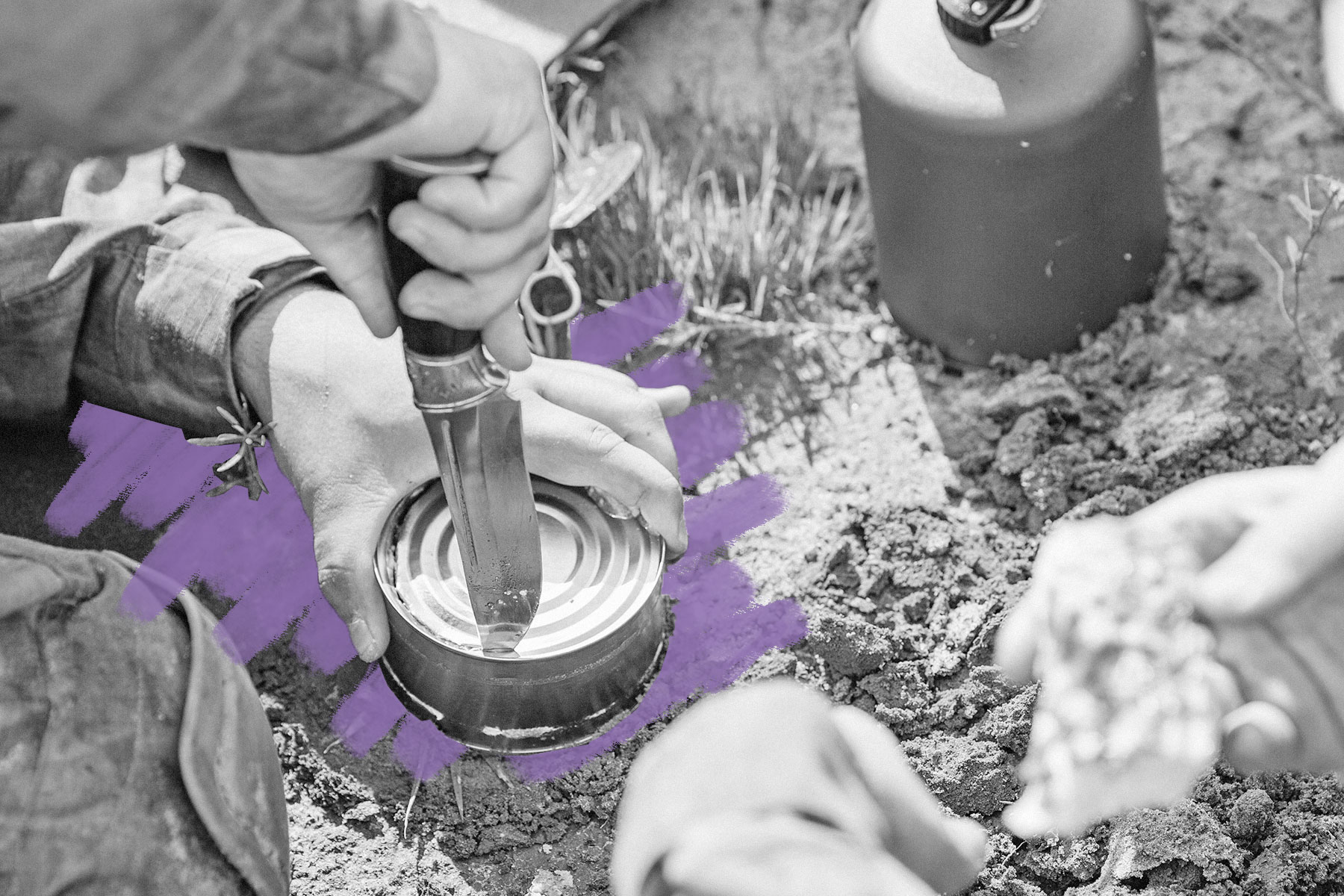Canned food was invented for military use, but soldiers had to cut cans open with bayonets.
In the late 18th century, the French army was looking for a way to keep food edible long enough to get it to soldiers on the front lines throughout Europe and beyond. Napoleon’s government offered a payment to whoever could develop a proper food preservation system, and in 1795, Nicolas Appert, a French chef, candymaker, and brewer, began experimenting with different techniques. He eventually discovered that sealing food in airtight containers and then heating them could prevent spoilage. At first, he packed a variety of foods such as soups, fruits, and vegetables into empty champagne bottles, sealed the cork with a mixture made of cheese and lime, and placed the bottles in boiling water. He then moved from bottles to jars and, eventually, also experimented with tin cans.
In 1810, Appert’s method of canning food was officially recognized by the French government; he was awarded the prize money and published his methods in a book called The Art of Preserving Animal and Vegetable Substances for Many Years. The same year, the process for using tin-coated iron cans for preserved food was patented, and by 1813, England was supplying canned food to the Royal Navy. While the problem of properly preserving food was solved, another issue presented itself: opening the cans. Soldiers resorted to using their weapons to get to their food, trying to cut them open with their bayonets or knives. It wasn’t until decades later, in the 1850s, that the can opener was finally invented.









